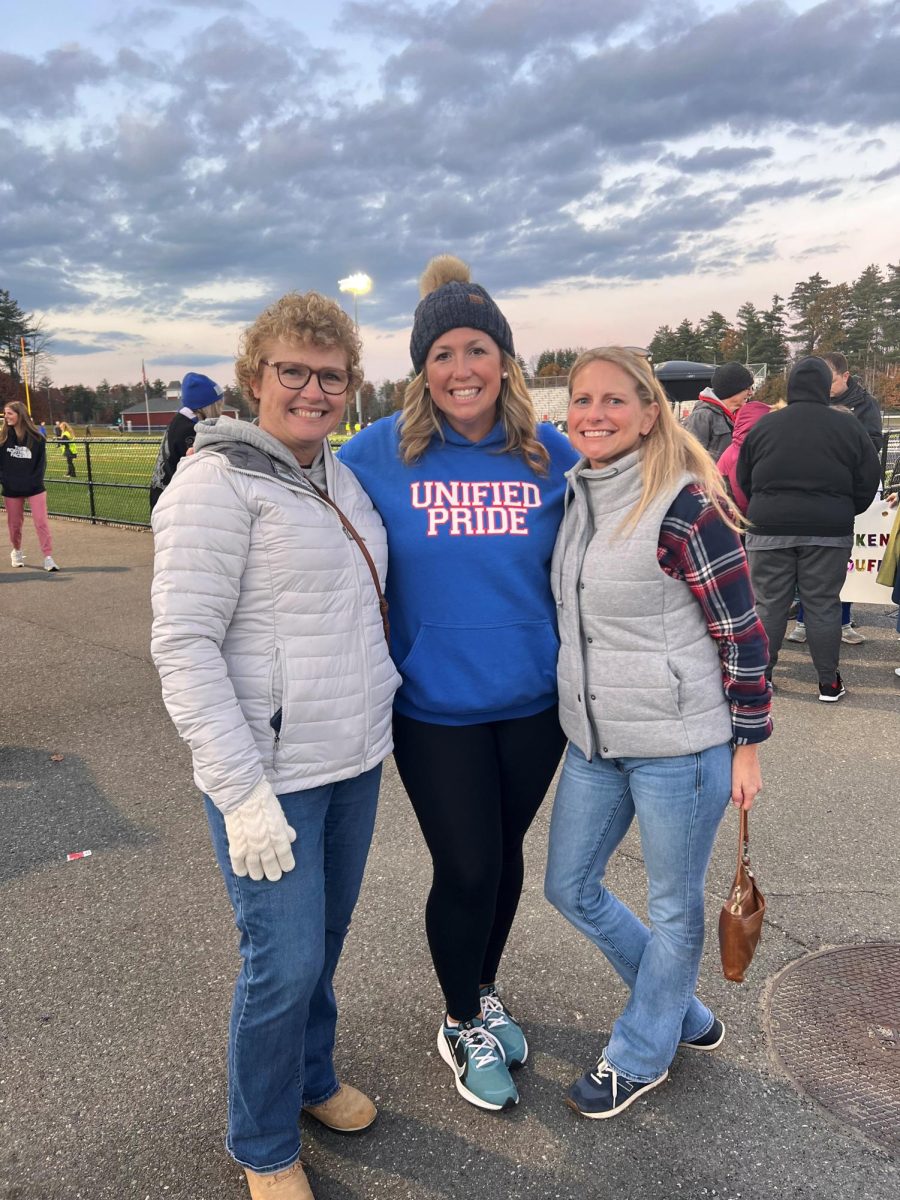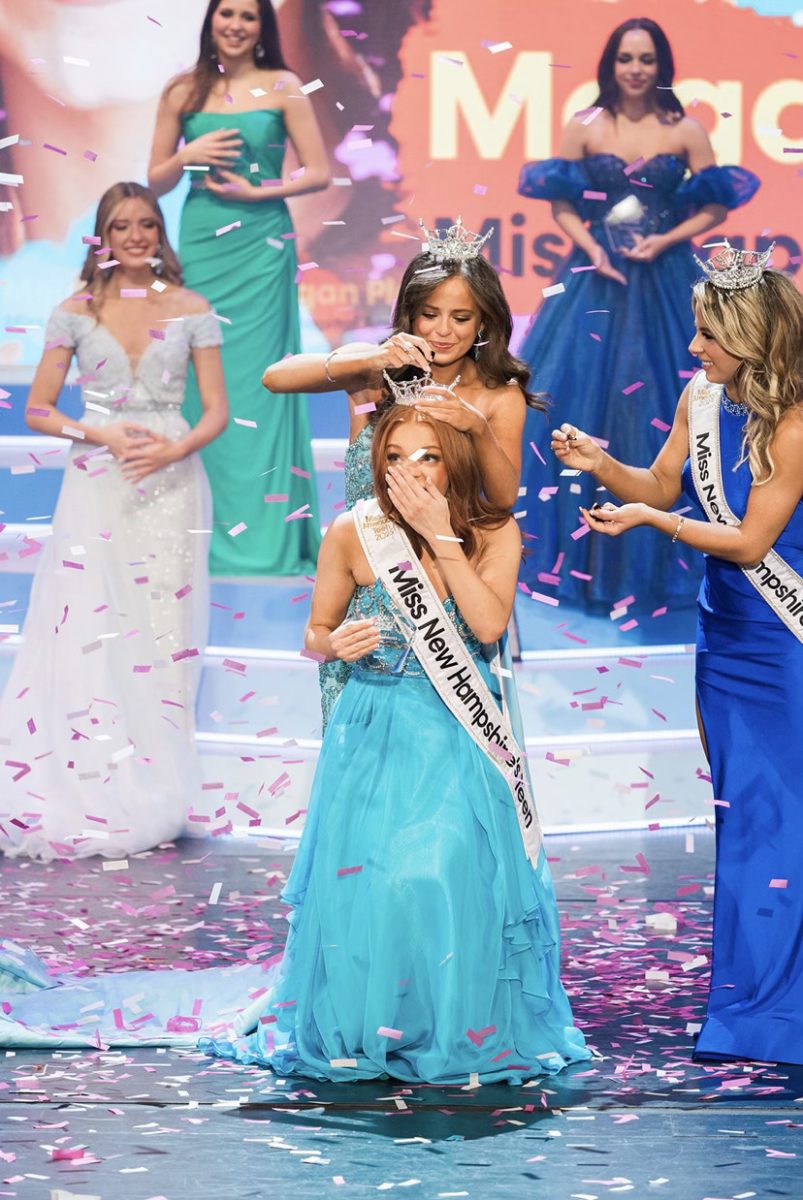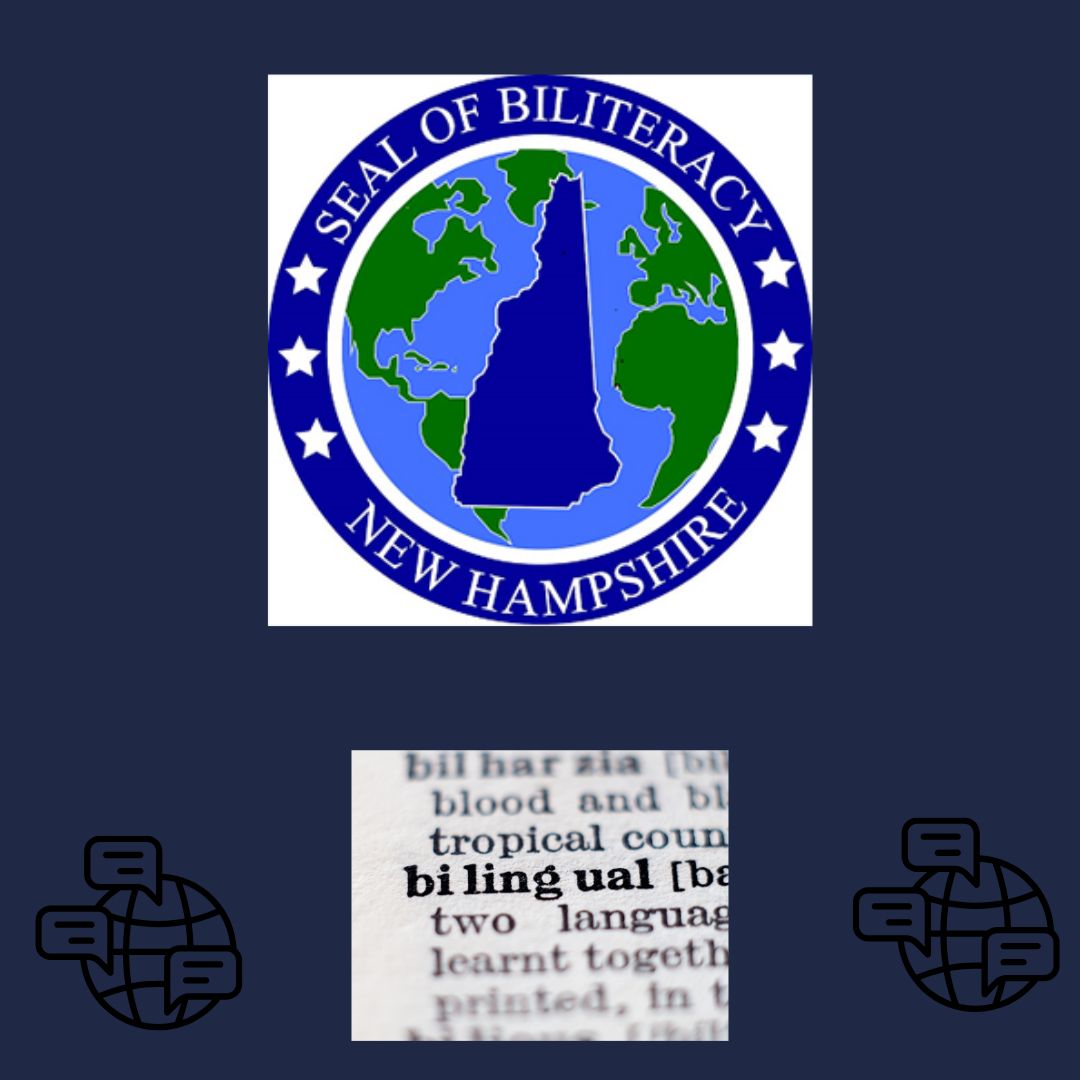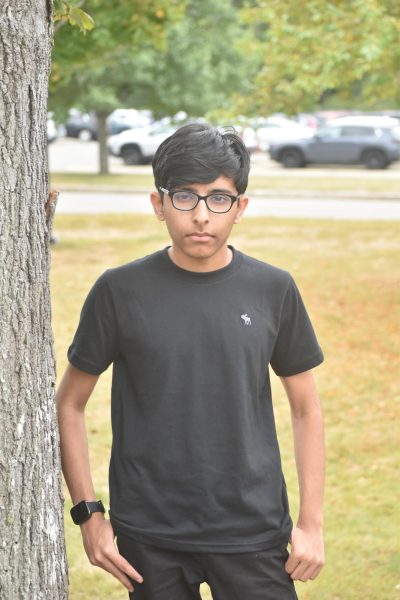Rows of tables, displays of banners, and stacks of brochures at every corner filled the LHS gymnasium, as students and parents gathered information about colleges they might choose to apply to. With representatives from schools across New England, other parts of the country, and even Canada, the tenth annual college fair, held on Sept. 16, offered an evening packed with possibilities in shaping students’ futures.
The College Fair was organized by the School Counseling Department to give students a chance to explore post-secondary options and connect directly with admissions representatives from a variety of schools. With this year marking the fair’s tenth year, Director of School Counseling Kaitlin Burkhardt is “thrilled to have over 80 colleges represented this year.”
“Each year, [the School Counseling Department] strives to expand the fair and show a variety of schools throughout the country, giving students increased exposure and more opportunities to explore their options,” Burkhardt said.
Though researching colleges online is convenient, Burkhardt feels that talking with admissions representatives in person gives students a deeper, more personal understanding of each school.
“Talking directly with an admissions representative allows [students] to ask specific questions, hear about opportunities they might not discover through a website, and get a feel for the personality of the school,” Burkhardt said. “These conversations can inspire students about the opportunities that are out there and are a chance to make a positive connection with the person who may be reviewing their application.”
Another advantage to college fairs is that they give students a chance to explore multiple options all in one place.
“Our fair features colleges from across the country, offering students the opportunity to gather information and connect directly with admissions representatives without the need to travel,” Burkhardt said.
According to Burkhardt, the fair “gives students a tangible step in their planning process, making their life after LHS feel more real.”
“Meeting representatives, asking questions, and seeing a wide range of options can take some of the mystery out of the process,” Burkhardt said. “This helps students feel more confident knowing that they are taking concrete steps towards their goals.”
To admissions representatives, such as Regis College Undergraduate Admissions Counselor Noah Lynch, the fair offered the chance to interact directly with students and other colleges.
“This is actually my third college fair, my first one solo,” Lynch said. “I really enjoy [the fair] because you get to talk with students and help answer questions that they have. You also get to interact with all the other universities and colleges, so you get to see what the demographics are like and [what’s] going on.”
Manchester Community College Admissions Counselor Jeremy Murphy adds that the college fair is “especially helpful for students who are uncertain about their future education.”
“College fairs allow a variety of different colleges to explore different areas and find out more about programs [students are] interested in,” Murphy said. “It just opens their eyes to different opportunities that they may not know about, different colleges and everything that they may not have considered in the past.”
With applying to colleges being a long process, Senior Assistant Director of Admission Marisa Najaran hopes that students feel reassured when they work on their applications.
“I want students to walk away with the understanding that there’s a lot of support for them from the college side,” Najaran said. “We want students to be successful, and that no matter what college they end up picking, the staff and faculty are going to support them throughout their mission of bettering themselves.”
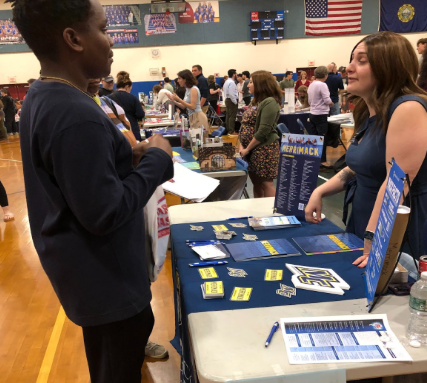
Despite the pressure college applications may bring, Lynch emphasizes the importance of simply getting started on the application process.
“[Applying to colleges] is definitely stressful, but do your best,” Lynch said. “Try to get a jump on it early, but ultimately, the school that you choose should feel like home, and you should feel comfortable at the school that you choose. Once you get one application [done], it kind of sets the stage for the rest.”
While students can walk away with new ideas about potential colleges and programs, the fair also gives families the chance to be part of the process. Lynch points out that college fairs “are a great way for parents to get involved.”
“Parents can ask questions too, and I enjoy answering them,” Lynch said. “You do get a lot of information [from the college fair]. I know me and all the other counselors here [at the fair] are ready and able to answer more questions.”
Beyond the fair, Murphy encourages students to tour as many colleges in person as possible to get an idea of what is out there.
“You never know what it’s really like because not every school is for everybody,” Murphy said. “Some people love the big schools, some people love the small schools, every school is going to be different.”
Watching students take these steps in finding the college that suits them the most is Burkhardt’s “favorite part of the fair.”
“Some [students] arrive with specific colleges in mind and are excited to meet a specific representative, while others are taking an important first step by simply attending and exploring their options – which is equally exciting,” Burkhardt said. “No matter where students are in the process, it is exciting to see them take this special step toward their future.”
Looking ahead, Burkhardt hopes that the impact of the college fair reaches even more students in the coming years.
“We hope the fair continues to connect students with opportunities and resources,” Burkhardt said, “and that more underclassmen take advantage early on—realizing that every year of high school helps shape their future.”



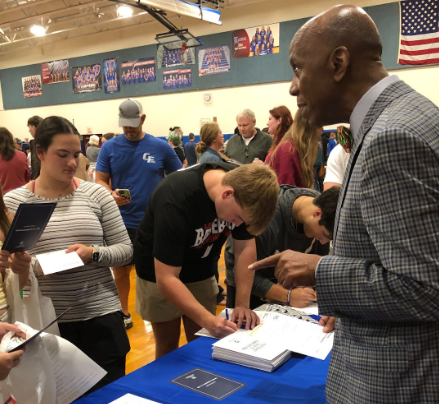
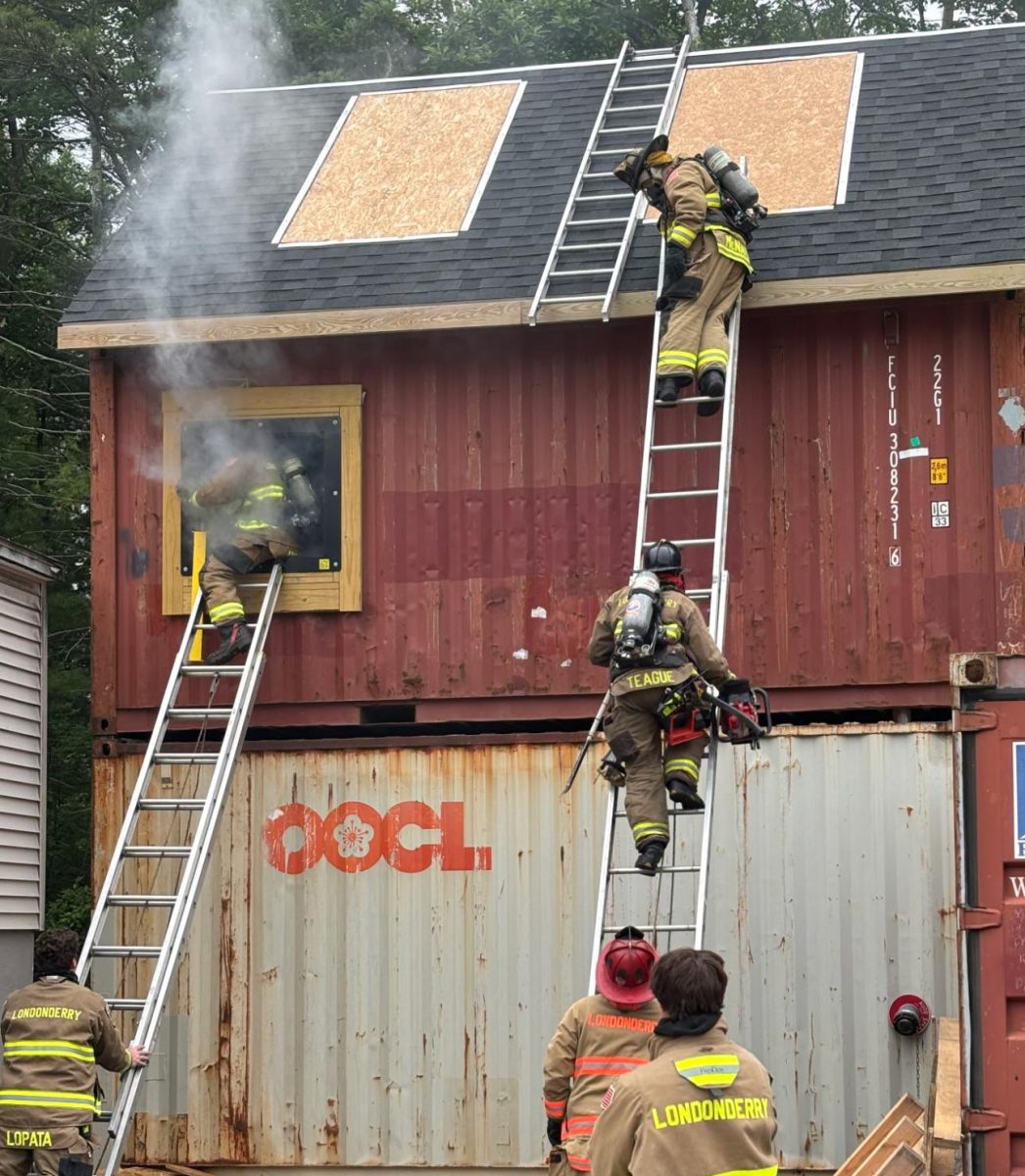
![Carol Ritchie helps one of her students through a computer assignment during A period. Ritchie has taught students basic English with activities to help them get a better grasp of concepts. problem-solving skills in her classroom. “I try to make the class fun and find [activities] that interest them,” Ritchie said.A banner of the world map and flags hangs near ESOL teacher Ms. Ritchie’s desk. (Image made in Canva by Kelsey Sweet).](https://www.lancerspiritonline.com/wp-content/uploads/2025/06/Light-Green-Featured-Jewelry-Instagram-Post.jpg)
